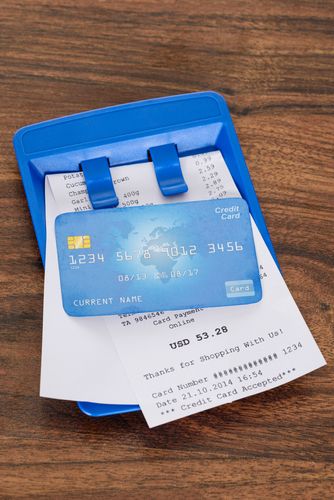 Merchants must take extra caution when processing customer purchases, especially when it comes to credit card or debit card receipts.
Merchants must take extra caution when processing customer purchases, especially when it comes to credit card or debit card receipts.
If merchants produce any printed receipts that have more than the last five digits of the consumer’s credit card, then the consumer can file credit card receipt lawsuit against the merchant for negligently exposing personally identifiable information.
This policy is required by federal law, and was created for the sole purpose of protecting consumers from identity theft and any similar threats that could effect their personal finances.
The Fair and Accurate Credit Transactions Act (FACTA) was passed on Nov. 22, 2003, after numerous consumers complained of feeling vulnerable after credit or debit card transactions.
Under this act, it allows consumers to request and obtain a free credit report once every twelve months from the nation’s three largest consumer credit reporting companies: Equifax, Experian, and TransUnion.
These companies are required to cooperate with the Federal Trade Commission (FTC) to help consumers gain access to accurate and detailed credit reports. This not only helps them keep track of their spending but allows them to check for any unidentifiable purchases or any other sign of identity theft or credit card fraud.
Ideally, FACTA will help contain and reduce identity theft as it allows consumers to place alerts in their spending histories if they suspect identity theft.
According to experts, FACTA has been especially helpful to soldiers who are deployed overseas as they often do not have the chance to check their credit card histories.
Furthermore, FACTA ultimately allows consumers the comfort of knowing that their personal information will be securely disposed after each purchase.
Overview of FACTA Policy
For the common consumer-merchant transaction, any printed receipt cannot contain any more than the last five digits of the consumer’s debit or credit number, or the cards’ expiration dates.
More specifically, FACTA states that any merchant that accepts either debit cards or credit cards for a business transaction, are required not to print any more than the last five digits of the card, and must completely omit the expiration date.
Ideally, merchants would do this by concealing the card numbers with symbols or other shapes, so that no information about the consumer is revealed. It is important to note that any credit or debit card transactions could potentially expose consumers to the risk of identity theft, as credit or debit card numbers are key pieces of information to access the consumer’s finances.
If it’s a debit card, that means direct access to the customer’s bank account.
Experts explain the reason for omitting these numbers is because the card numbers and the card expiration date are the easiest pieces of information to use to commit identity theft or credit card fraud against the consumer.
If either of these appear on the receipt, then the consumer’s rights have been violated under federal law and they can opt to proceed with to file a FACTA lawsuit. Any businesses found to be in violation of FACTA can face fines as well as any applicable punitive damages. FACTA applies to all electronically printed customer receipts printed by: cash registers, self-service kiosks, and restaurant meal receipts.
Free FACTA Class Action Lawsuit Investigation
If you made one or more purchases and the retailer provided you with a receipt that contained more than the last five digits of your credit or debit card number or the expiration date, you may be eligible for a free class action lawsuit investigation and to pursue compensation for these FACTA violations.
ATTORNEY ADVERTISING
Top Class Actions is a Proud Member of the American Bar Association
LEGAL INFORMATION IS NOT LEGAL ADVICE
Top Class Actions Legal Statement
©2008 – 2025 Top Class Actions® LLC
Various Trademarks held by their respective owners
This website is not intended for viewing or usage by European Union citizens.














